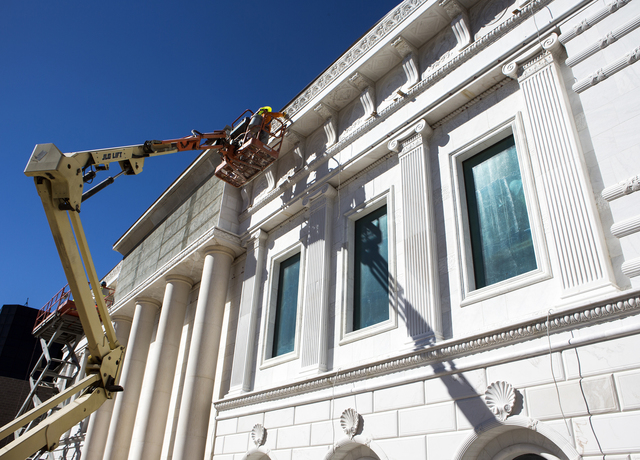
CARSON CITY — The Nevada Supreme Court handed low-wage earners a mixed bag of wins and losses in three opinions issued Thursday interpreting the state’s minimum wage law enshrined in the Constitution.
In one major ruling, justices unanimously said Nevada employers need only offer health insurance to minimum wage workers to pay a lower minimum wage than otherwise is required under the state constitution.
But in another decision involving taxicab drivers who are now covered by the minimum wage law, the court unanimously rejected arguments by cab companies that it should only apply since 2014. The court held the minimum wage law is retroactive to when it was approved by voters in 2006.
The taxicab ruling involving a potential class action lawsuit has financial implications for the cab industry in Nevada but less so following a third ruling from the court.
The third ruling clarified that the statute of limitations to file minimum wage lawsuits is two years, not four, as some lawyers had argued.
Two-tiered system
Under Nevada’s two-tiered minimum wage law passed by voters in 2004 and 2006, employers who offer health insurance to workers and their families can pay a minimum hourly rate that is $1 less than they would have to pay if no insurance is offered.
The current rates are $7.25 per hour if insurance is offered, and $8.25 if it is not.
In the case involving health insurance, the unanimous opinion authored by Justice Michael Douglas rejected arguments by lawyers for low-wage earners that workers must be enrolled for health coverage — as opposed to just being offered it — to be able to be paid $1 less per hour.
Critics argued employees must actually be enrolled for coverage for the lower wage to be applicable. Justices disagreed, saying whether or not to receive health benefits is the employee’s option.
The law also set a 10 percent wage cap on the amount an employee can be required to contribute toward coverage. The court, in its opinion Thursday, said tips are not to be included in those calculations — a distinction that could save workers money. By some estimates, including tips as part of the 10 percent cap would triple the cost of an allowable plan.
Fight not over
Bradley Schrager, one of the lawyers who brought a lawsuit against restaurant companies MDC Restaurants LLC, Laguna Restaurants LLC and Inka LLC, said the ruling does not settle the issue.
“Today was a mixed result for Nevada minimum wage workers, and both sides won portions of their arguments,” he said. “We are glad the court recognized that many employers are unlawfully overcharging their employees for health benefits,” he said, referring to the tip component.
But another important aspect still pending before the Supreme Court is whether health plans offered by companies meet the requirements of health insurance to qualify for the lower minimum wage.
A Clark County District Court judge previously sided with the workers, ruling that the plans did not qualify to pay workers “less than the upper tier minimum hourly wage.”
“The court will still determine whether many of the poor-quality health plans offered by employers meet constitutional requirements, and we’re confident most do not,” Schrager said.
Also yet to be decided is whether disputes over minimum wage and health benefits must first be brought before the state labor commissioner before they are filed in the courts.
Taxicab drivers
Regarding taxicab drivers, the high court in 2014 said drivers are covered under the minimum wage law. That ruling was a victory for Las Vegas cabdrivers Christopher Thomas and Christopher Craig, who had sought unpaid wages from their employers, the Nevada Yellow Cab Corp., Nevada Checker Cab Corp. and Nevada Star Cab Corp.
The cab companies went back to court to argue that the 2014 decision should not be applied retroactively to when the minimum wage law was enacted, but instead from the date of the court’s previous ruling.
But justices, in another unanimous decision Thursday, rejected that argument, saying the minimum wage rules took effect upon passage by voters.
The decision has financial implications for the cab companies because cabdrivers are seeking class action status in the case.
But because of the two-year statute of limitations ruling by the court in Perry v. Terrible Herbst Inc., the class size and the time frame that applies to the alleged underpayment of minimum wage will be reduced.